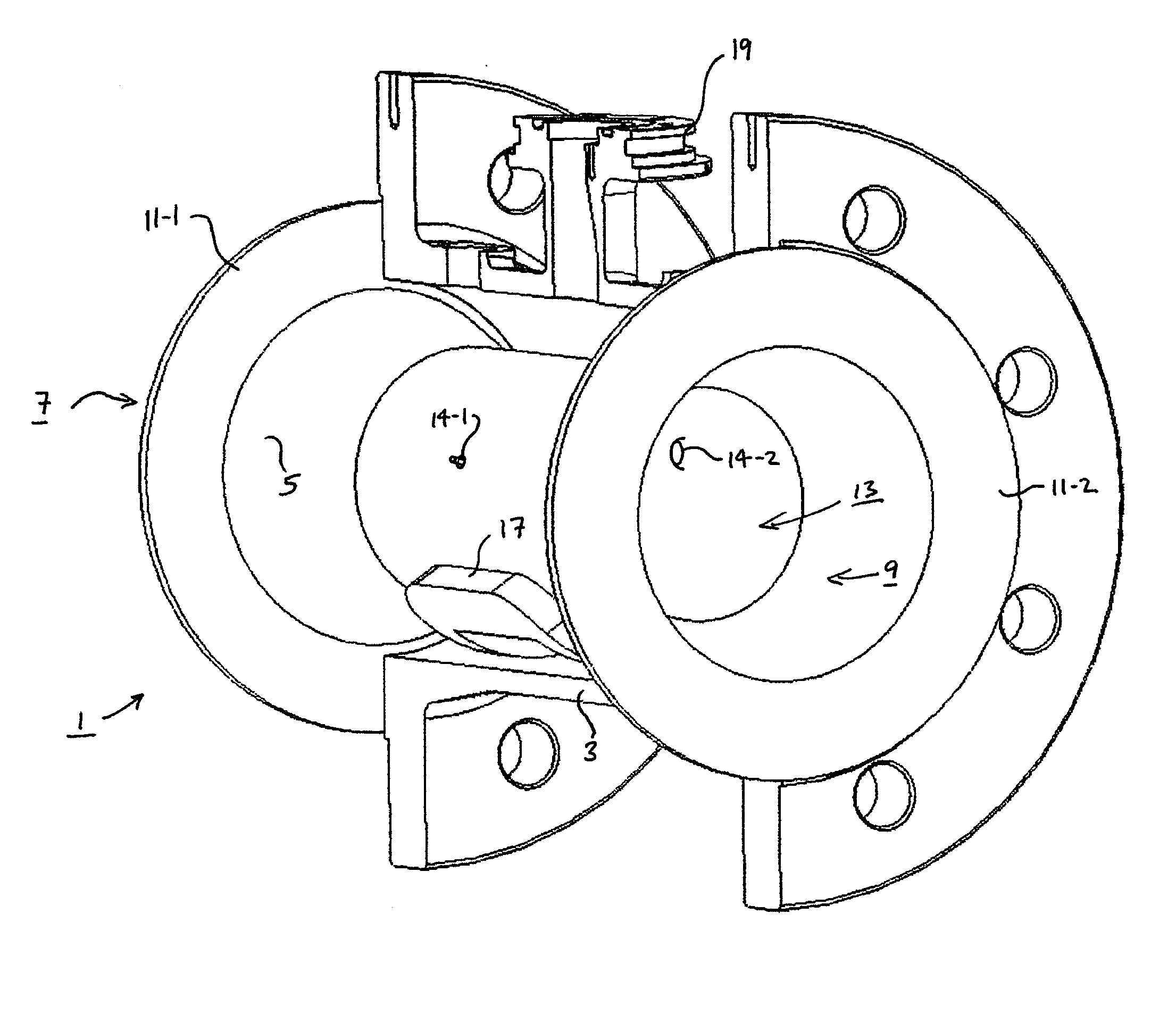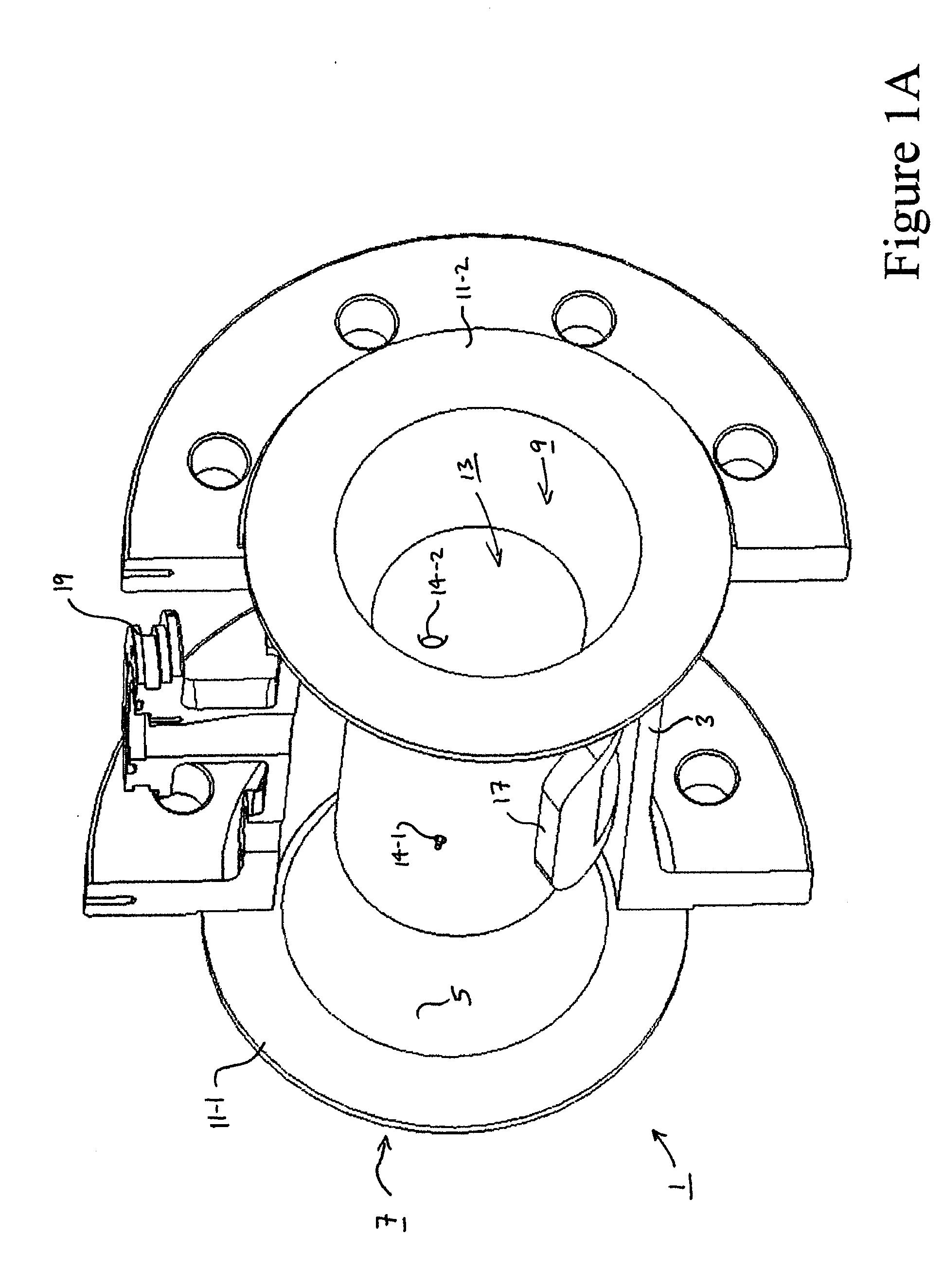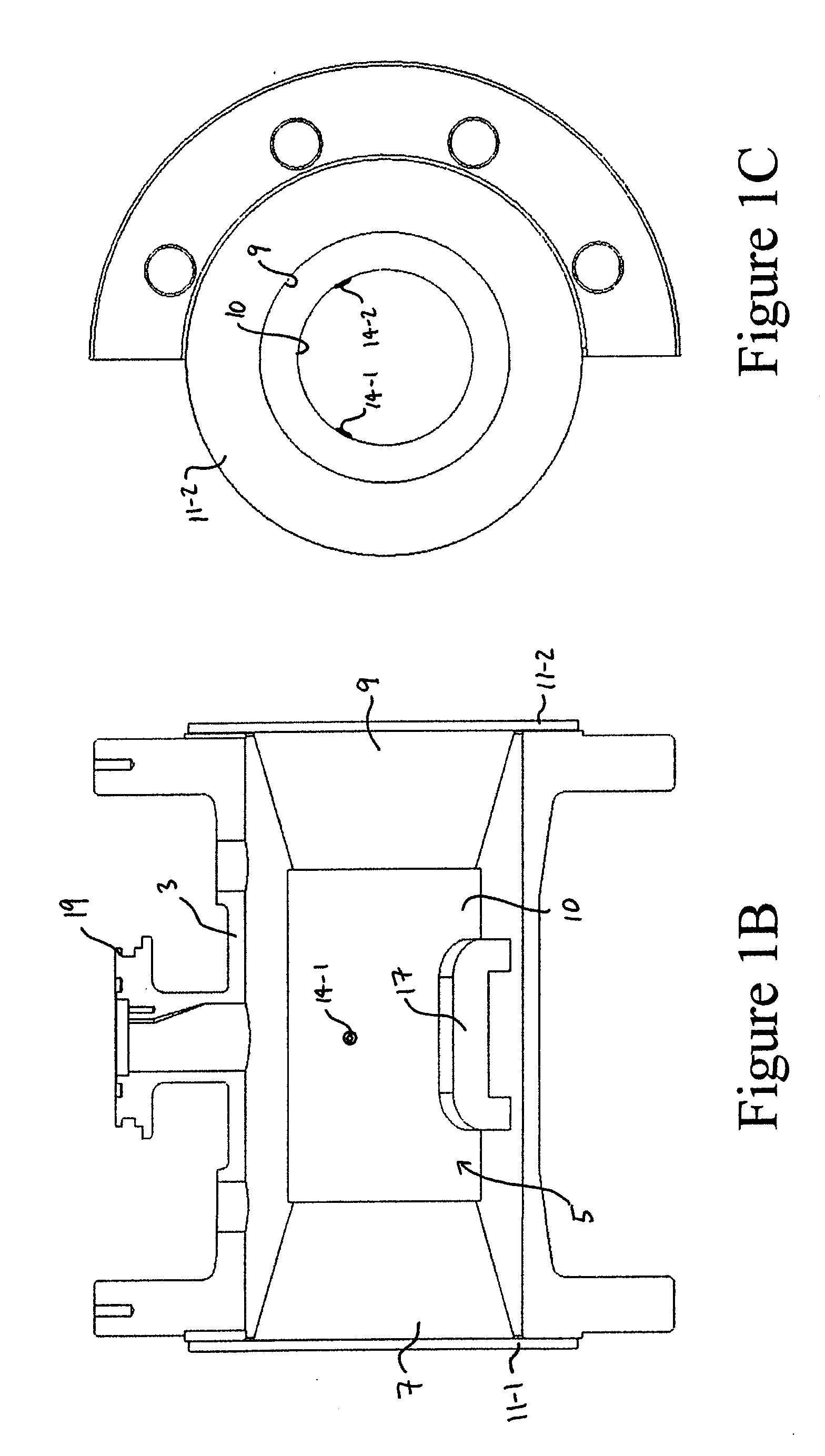Flow meter
a flow meter and flow rate technology, applied in the field of flow meters, can solve the problem of relatively high cost of electromagnetic flow meters, and achieve the effect of reducing costs
- Summary
- Abstract
- Description
- Claims
- Application Information
AI Technical Summary
Benefits of technology
Problems solved by technology
Method used
Image
Examples
embodiment 1
[0041]FIGS. 1 and 2 illustrate an electromagnetic flow meter 1 embodying the present invention. The flow meter 1 has a flow conduit 3 (made in this embodiment of Carbon Steel) which is cut in half to illustrate the form of an elongate insert 5 that is longitudinally inserted within the conduit 3. The insert 5 includes an inlet section 7, an outlet section 9 and a central measuring section 10, all of substantially circular cross-section. The dimensions of the inlet 7 and the outlet 9 are such that these sections of the insert 5 just fit within the flow conduit 3. In this embodiment, the insert has flanges 11-1 and 11-2 at each end (one of which may be detachable to facilitate insertion of the insert 5 within the flow conduit 3) that hold the insert securely within the flow conduit 3. The inner walls of the insert 3 define a central bore 13 for the passing of the fluid and means in the form of electrodes 14-1 and 14-2, for detecting electrical potential of the fluid passing through th...
second embodiment
[0049]FIGS. 3A, 3B and 3C illustrate an alternative design of electromagnetic flow meter embodying the present invention. In these Figures, the same reference numerals have been used to designate like elements.
[0050] The main difference between the flow meter of this embodiment and the flow meter of the first embodiment is that the measuring section 10 has an octagonal cross-section in a direction transverse to the fluid flow. Further, in this embodiment, as illustrated in FIG. 3B, the single coil 17 surrounds a lower segment of the measuring section 10 having a segment angle (θ) of approximately 140 degrees.
[0051] In this embodiment, each electrode 14 is offset from the centerline, by an offset angle (Φ) of 20 degrees.
[0052] In this embodiment, the insert may be made from any one of: polytetrafluoroethylene (PTFE), ethylene-tetrafluoroethylene (ETFE), polypropylene (PP), polyvinylchloride (PVC), polyethylene terephthalate (PET), acrylonitrile butadiene styrene (ABS), polyethylen...
third embodiment
[0053]FIGS. 4A and 4B illustrate an alternative design of electromagnetic flow meter embodying the present invention. In these Figures, the same reference numerals have been used to designate like elements. The only difference between the flow meter of this embodiment and the flow meter of the second embodiment is that in this embodiment, the electrodes 14 are not offset from the centerline. Instead, they are positioned to be opposite each other along the centerline that passes through the longitudinal axis of the measuring section 10.
PUM
| Property | Measurement | Unit |
|---|---|---|
| Fraction | aaaaa | aaaaa |
| Angle | aaaaa | aaaaa |
| Angle | aaaaa | aaaaa |
Abstract
Description
Claims
Application Information
 Login to View More
Login to View More - R&D
- Intellectual Property
- Life Sciences
- Materials
- Tech Scout
- Unparalleled Data Quality
- Higher Quality Content
- 60% Fewer Hallucinations
Browse by: Latest US Patents, China's latest patents, Technical Efficacy Thesaurus, Application Domain, Technology Topic, Popular Technical Reports.
© 2025 PatSnap. All rights reserved.Legal|Privacy policy|Modern Slavery Act Transparency Statement|Sitemap|About US| Contact US: help@patsnap.com



